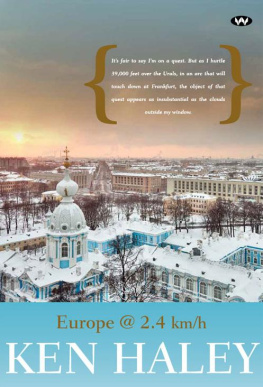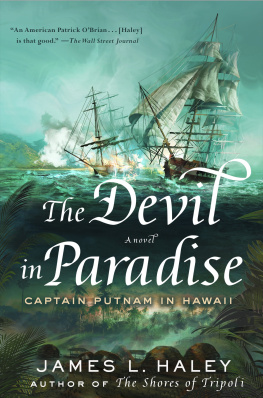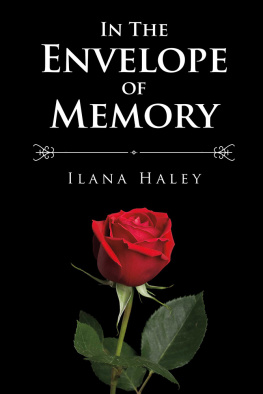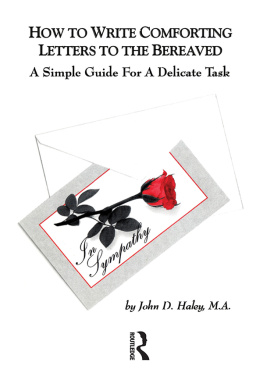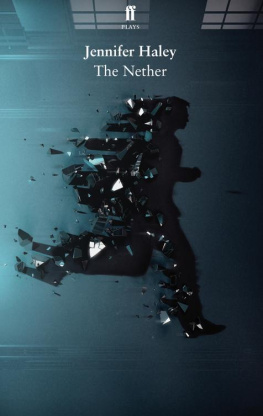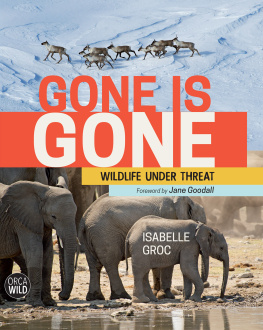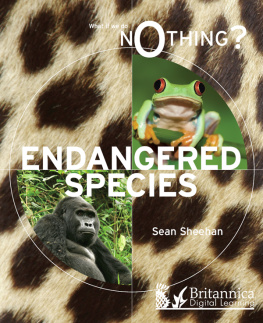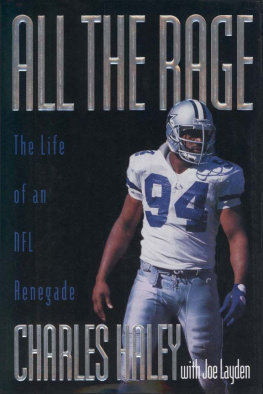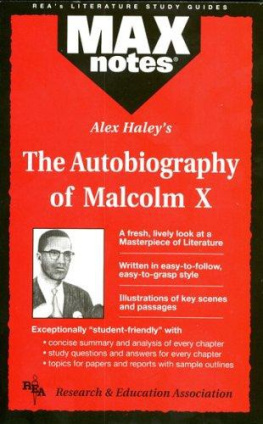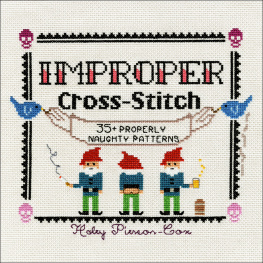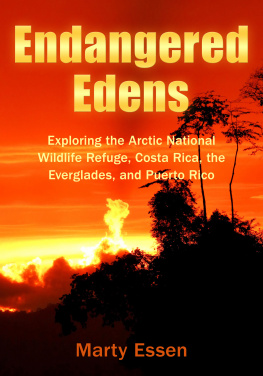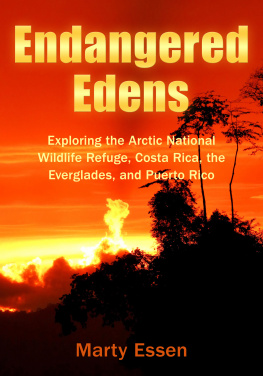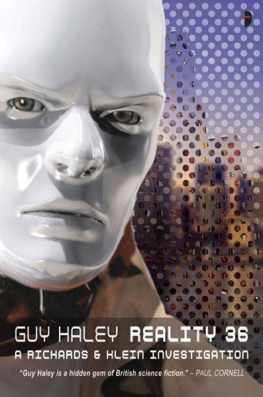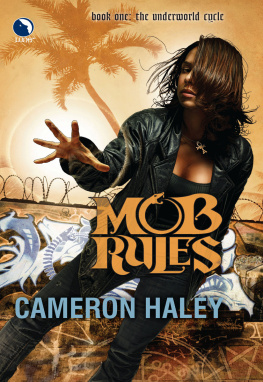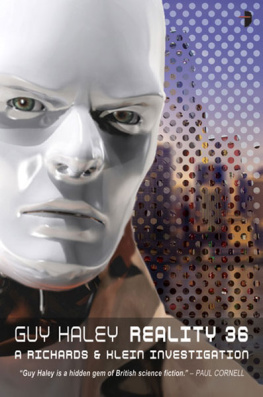Wakefield Press
Europe @ 2.4 km/h
Ken Haley is one of Australias most widely travelled authors. He became a paraplegic in 1991, but so far as Ken is concerned the only difference that has made is that he now observes the world from a seated position. A journalist by profession, he has had stints on the foreign desk of The Times, Sunday Times and Observer in London, the Gulf Daily News in Bahrain and the South China Morning Post in Hong Kong. He has also worked at the Age, Melbourne, and as a newspaper sub-editor in Athens, Hong Kong and Johannesburg. Until recently he was the editor of the Dimboola Banner.
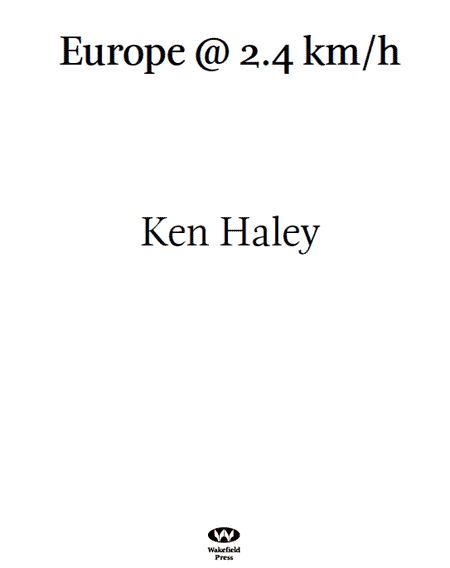
Wakefield Press
1 The Parade West
Kent Town
South Australia 5067
www.wakefieldpress.com.au
First published 2011
This edition published 2011
Copyright Ken Haley, 2011
All rights reserved. This book is copyright. Apart from any fair dealing for the purposes of private study, research, criticism or review, as permitted under the Copyright Act, no part may be reproduced without written permission. Enquiries should be addressed to the publisher.
Cover design by Stacey Zass, Page 12
Edited by Julia Beaven, Wakefield Press
National Library of Australia Cataloguing-in-Publication entry
| Author: | Haley, Ken, 1954- . |
| Title: | Europe @ 2.4 km/h [electronic resource] / Ken Haley. |
| ISBN: | 978 1 74305 075 0 (ebook: epub). |
| Notes: | Includes bibliographical references. |
| Subjects: | Haley, Ken, 1954 Travel Europe.
Journalists Australia Biography.
Paraplegics Australia Biography.
Europe Description and travel. |
| Dewey Number: | 070.92 |
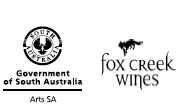
Contents
| PROLOGUE | Which Europe Would That Be? |
| CHAPTER 1 | Magnetic North
RUSSIA |
| CHAPTER 2 | True North (Refilling the Ocean)
NORWAY and NORRLAND, CENTRAL SWEDEN |
| CHAPTER 3 | Our Bicycles Have Seats
SOUTHERN SWEDEN, OSLO and DENMARK |
| CHAPTER 4 | The Past is a Foreign Country
COPENHAGEN, NYKBING and BREMEN |
| CHAPTER 5 | Fellatio at Eleven
THE NETHERLANDS |
| CHAPTER 6 | Why is there a Belgium?
FLANDERS and WALLONIA |
| CHAPTER 7 | Close to Civilisation
GERMANY |
| CHAPTER 8 | French Impressions
THE NORTH OF FRANCE |
| CHAPTER 9 | Chic Just Happens
THE SOUTH OF FRANCE and MONACO |
| CHAPTER 10 | An Avalanche Without Snow
ANDORRA |
| CHAPTER 11 | Broken Railway, Smokin Bar
NORTHERN IBERIA (NORTHERN SPAIN, NORTHERN PORTUGAL) |
| CHAPTER 12 | The End of Europe
SOUTHERN IBERIA (SOUTHERN SPAIN, SOUTHERN PORTUGAL) |
EUROPILOGUE
NOTES
BIBLIOGRAPHY
ACKNOWLEDGEMENTS
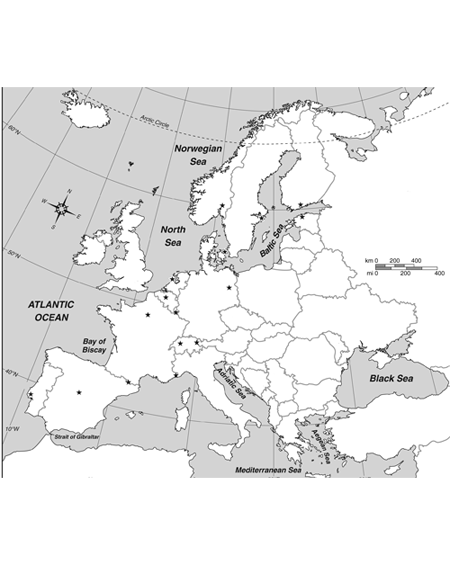
Nous voulons voyager sans vapeur et sans voile!
Faites, pour gayer lennui de nos prisons,
Passer sur nos esprits, tendus comme une toile,
Vos souvenirs avec leurs cadres dhorizons.
We long to travel not by steam or sail,
For here in prison every days the same.
Oh, paint across the canvas of our soul
Your memoirs, with horizons as their frame.
Charles Baudelaire,
Les Fleurs du Mal,
Part III, Verse 2
LE VOYAGE
To Nin,
for all your love in the unconditional past, perfect.
Prologue
Which Europe Would That Be?
What am I doing here in Europe? You might well ask; I ask myself. Surely there can be nothing new under the European sun, you say, nowhere on the face of the globe will you find real estate more tramped over, fought over, written about. Even the ancients called it the known world.
At school, European was often bracketed with explorer. The first pictures we received of these mavericks from the other end of the world portrayed them as heading out to the lands of lesser breeds, discovering societies that didnt have enough sense to know they were lost. Well, the Europeans world might be known to them but, 400 years later, we in their Antipodes have our own known world. So, I tell myself, perhaps its time to return the compliment and go exploring the Old World anew.
The European explorers set off in search of spice and riches. If my only spice turns out to be the piquancy of human behaviour, my only riches the joy of the journey itself and of witnessing the cultures I roam among, so be it. We live in different times, or so we like to believe. I come in peace, O Father of Continents, and have no desire to conquer you. Let others treat you as a glittering bauble, your attractions all obvious, all external. For me, Europe is a magic box. I yearn to know whats inside, and to find out I will try to grasp it at both ends, north and south, to turn it round, shake it a little.
Four years since my last European landfall, I am picking up where I left off Tallinn, Estonia and tomorrow will ring in the grandeur of St Petersburg. After traipsing across that vastness of European Russia which goes by the name of Karelia, I will light out for the northernmost reaches of the only continent we call the Continent before pursuing a host of detours that land me, finally, on the road to Portugal.
Its fair to say Im on a quest. But as I hurtle 39,000 feet over the Urals, in an arc that will touch down at Frankfurt, the object of that quest appears as insubstantial as the clouds outside my window.
A week before leaving Australia I was having a drink with two colleagues during a mid-shift break and found myself hard pressed to say what was so special, uniquely European, about Europe. When I suggested that Europe stood for the idea that humans were destined to subdue or govern the natural world rather than coexist passively with it, one of my colleagues scoffed, You could say the same about Australia or America. Conceding his point perhaps too readily, given that Australia and America are European societies, too I found myself back at square one. Not to worry, I would have plenty of time to ponder the question further: seven-and a-half months of it.
In a direct line, the northern point of this landmass lies about 5000 km from its southern tip. But this will be a journey of tangents, not short cuts. By visiting its northern, southern and western extremities, I aim almost literally to comprehend the whole, to encompass what lies between the extremities, to open the lid on this magic box of Europe. How much room can there be inside for secrets? Next to my homeland, Australia, it is the smallest as well as the oldest-named of all those pieces of the terrestrial jigsaw we call continents. Surely, when the shaking has stopped, I will know what enticed me here: the culture, the scenery, the European spirit (if such a thing exists), the people themselves. Or all of the above and then some.
In Hong Kong, a couple of days before my flight to Europe, I read in the South China Morning Post an article about Sierra Leonean ex-child soldiers being educated in a Spanish college, prompting the thought that one thing Europe must stand for is the belief its values are universal. Sometimes this presumption has been put to questionable use, as in the exploitative aspect of colonialism; and sometimes to benign use, as reflected in the inclusiveness and generosity of spirit exhibited in that Spanish initiative.

